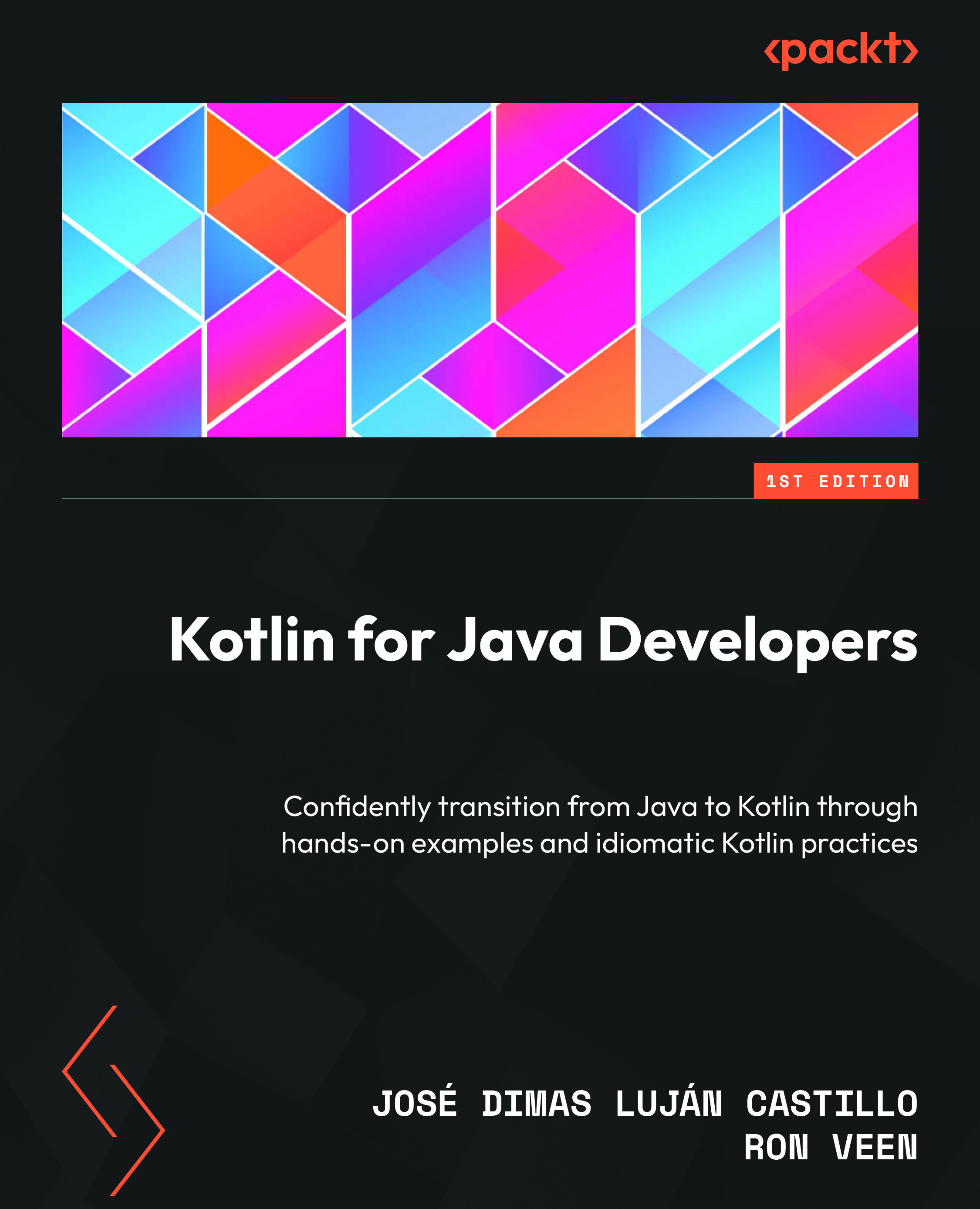Summary
In this chapter, we delved into the foundational concepts of OOP as they relate to both Java and Kotlin. You learned about the importance of classes and objects, the cornerstones of OOP, and how to define them in Kotlin. We explored how properties represent the characteristics of an object, and how methods define the actions that an object can perform. We also covered key concepts such as constructors – both primary and secondary – and how they initialize objects with specific states. Furthermore, we examined Kotlin’s ability to streamline code by automatically generating getters and setters, reducing verbosity while maintaining clarity and efficiency.
The information in this chapter is crucial because a solid understanding of OOP is essential for any Java or Kotlin developer. Mastering these concepts allows you to write more structured and maintainable code. Moreover, understanding how Kotlin optimizes these OOP principles, particularly through features...

































































